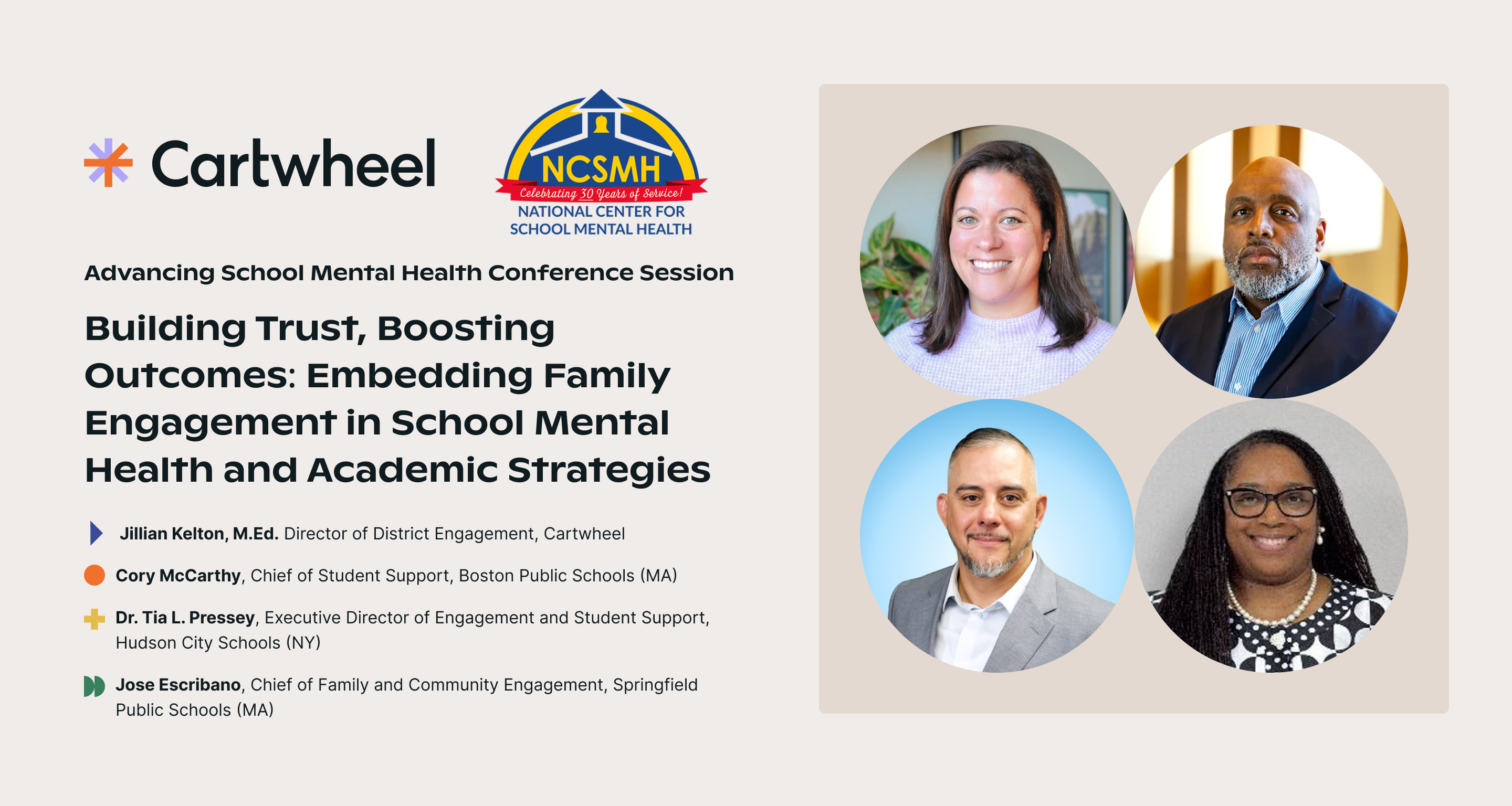Content warning: this article discusses the topics of suicidality and self-harm. If you or a loved one are experiencing mental health-related distress, call or text 988 for free and confidential support. If you are experiencing an emergency, visit your closest emergency room or call 911.
______________
Sometimes it can be hard to find the words to talk to kids and teens about certain topics. As parents and caring adults, we may feel nervous about saying the wrong thing, or making matters worse. However, research shows that when it comes to topics like suicidality - talking is helpful, not harmful. Now more than ever, it’s important for us as caregivers to feel equipped to have these conversations with our kids.
In 2022, suicide was responsible for 49,476 deaths in the United States, 6,500 of those deaths were youth between the ages of 10-24. In 2022, suicide was the second leading cause of death for people ages 10-14 and 20-34 (CDC).
The share of high school students who experienced “suicidality”—which includes suicidal thoughts, plans, and attempts—increased from 2011 to 2021, according to new data from the Centers for Disease Control and Prevention (CDC).
In the 2021 survey from the CDC:
- Overall, 22% of high school students said that they had seriously considered suicide within the past year (up from 16% in 2011).
- 18% percent said that they had made a suicide plan (up from 13% a decade prior)
- 10% said they attempted suicide at least once (up from 8% a decade prior)
All demographic groups across race, ethnicity, and sex experienced increases in suicide risk since 2011, but certain groups faced greater risk than others: including female students, Black students, and students who identified as LGBTQ+.
Recently, Cartwheel hosted Chris Smith for a webinar where he provided practical tips and scripts for how to speak with kids and teens about suicide prevention. Chris is a licensed clinical social worker, psychotherapist and Director of the Entertainment Community Fund’s Looking Ahead program, which supports the mental health and well-being of child actors and other professional young performers.
Read on for tips on how to support a child or teen who may be experiencing suicidality.
1. Know the Warning Signs
Sometimes, there are warning signs that someone may be contemplating suicide. The American Foundation for Suicide Prevention (AFSP) describes the warning signs as fitting broadly into three categories: Talk (what they are saying), Behavior (what they are doing), and Mood (how they are feeling). Some signs may include talking about being a burden to others, feelings of hopelessness, withdrawing from friends or activities, and showing loss of interest. Learn more about these warning signs, as well as risk and protective factors, at the AFSP.
2. Listen with Compassion
Sometimes we just need someone to see our pain. When we are experiencing emotional distress, sometimes we want someone to help take that pain away, but often what we most need and/or hope for is someone to see and understand how we may be hurting. This can be true for both adults and youth alike. When a child or teen shares emotional distress in some way, remember that making space for their pain is meaningful. You can try saying:
- I hear you. I see you.
- I can see how much pain you are in.
- Tell me about your pain.
- What does it feel like?
- Where do you feel it? (Helping them to connect with their body)
If someone mentions suicide, believe them. We want to take all expressions of suicidal thoughts seriously. A common reaction may be to think your child is exaggerating or “they just want attention.” If that is the case, please give them the attention. If your child had the skills to say “I’m feeling really upset and alone, could you hug me?” assume that they would, but our kids and teens–and many adults–do not have the skills to communicate that need. You can help provide vocabulary and the scaffolding for them to understand and express whatever they may be feeling.
3. Be Direct and Ask Questions
When it comes to ensuring your child’s safety and discussing their risk of suicide, be direct and try not to mince your words. Your directness can show a couple things: 1) that you’re not afraid of this topic and 2) that you will be able to competently handle this topic. Our comfort and competence with the topic of suicidality can provide children a sense of safety to know that if they do have an issue, that they can trust us to effectively handle it. If you are worried about your kid or teen, you may ask:
- Listening to you talk about your pain, it’s making me wonder if you are thinking of killing yourself? Or if you have ever thought about killing yourself?
- Do you want to kill yourself?
- Have you ever tried to kill yourself? Or made a plan to kill yourself?
- Have you ever tried to hurt yourself?
Remember you should not feel pressure to handle the issue all on your own. If your child does disclose suicidal thoughts to you, let them know that you care and that you are going to help them get help. Then, you can pull in medical and/or mental health professionals to provide further support to you and your child.
4. Practice What You’d Say
Just as you may practice how to escape a fire in your home, prepare yourself for a different type of potential crisis and practice what you may say if your child or teen expresses suicidal thoughts. Practicing with yourself, a partner, or friend can help you find the words that feel natural to you. What could you envision yourself saying? What would you never say?
5. Keep Them Talking
Remember, if your child is expressing that they are having suicidal thoughts, it's a good thing that they are telling someone. It’s much better that they are talking to you rather than not talking and acting upon their thoughts. Keep them talking, listen to what they’re saying, and also stay attuned to what they are doing, or how they are behaving. Remember, research shows that talking about suicide does not increase suicidal ideation. Taking or making the time to help someone explore their suicidal thoughts can provide tremendous relief. When people are able to hear their thoughts out loud, it may reduce their stress levels and allow them to calm.
6. Involve Them in Seeking Help
If a child or teen does express suicidal thoughts to you, involve them in the next steps to seek help. Especially for teens and young adults, ask the question: “I have some thoughts about what may help, but I’m curious what you think might be helpful?” There are times when you as the parent or adult need to make the decision about the next steps, especially with younger children, but generally if you’re able to get a child bought-in on next steps, the more successful help-seeking will be.
7. Don’t Dismiss or Scold
Be sure not to punish a child or teen for expressing suicidal thoughts to you. You want them to feel safe coming back to you, and if they don’t believe you will really listen to them and/or fear they will be in trouble, they may not feel comfortable raising the issue again. Validate your child’s emotional distress and pain. Avoid saying dismissive things like “You don’t really mean that” or “You wouldn’t do that, you’re just saying that.” Also avoid being too quick to reassure with words like “it will get better” or “you’ll forget all about this soon” as that can also feel invalidating and rejecting.
8. Teach and Practice Coping Skills
With or without the help of a mental health professional, you can teach coping skills to your child for when they are experiencing moments of distress. Help them identify triggers that make them feel susceptible to suicidal thoughts, and work together to identify and practice coping skills. For example, you can help your kid or teen identify who they can talk to when they are feeling distressed. Share your observations and ask them about what self-soothing techniques make them feel better. If they are open to it, practice coping skills, like deep breathing, physical touch (self-hugs or asking for a hug), going out for a walk, or listening to music, together.
9. Prioritize Safety
Finally, prioritize safety by reducing risk. If a child or teen in your home is at risk of suicide, remove means from the house including firearms, pills, and sharp objects. Create a plan together on what they’ll do if suicidal thoughts arise. Will they tell you? Call a friend? Utilize one of their coping strategies? And remember to bring in others to support you and your child including therapists, people from your religious communities, extended family members, and school counselors. These trusted adults can help provide you counsel and emotional support, as well as offer their caring presence to your child.
Key Takeaways:
- If you are a parent or caregiver to a child who has expressed suicidality, remember you don’t have to be perfect in how you respond to your child.
- By taking your child seriously and listening to their words without judgment, your calm, supportive presence will help you to better understand what your child is going through, and help them know that you are there for them.
- If or when you have greater worry, don’t hesitate. You are not alone and there are multiple avenues of support for both you and your child.
- Watch the replay of our webinar on this topic for more tips and scripts to help you navigate these conversations with your child.
>> If you or a loved one are experiencing mental health-related distress, call or text 988 for free and confidential support 24/7.
>> If you are experiencing an emergency, visit your closest emergency room or call 911.
Additional Resources:
- American Foundation for Suicide Prevention
- Hey Sam - peer-to-peer texting for people up to 24 years old
- The Trevor Project: 1-866-488-7386
- RAINN National Sexual Assault Hotline: 1-800-656-HOPE (4673)
- National Teen Dating Abuse Helpline: 1-866-331-9474
_______________
DISCLAIMER:
The information, including but not limited to, text, graphics, images and other material contained on this website are for informational purposes only. No material on this site is intended to be a substitute for professional medical advice, diagnosis or treatment.
If you or your child are in crisis or experiencing mental health problems please seek the advice of a licensed clinician or call 988.





